The Wall Street Journal reports on a testy exchange between President Obama and Congressional Republicans at the White House yesterday.
“At one point, the president told Republican leaders to ‘stop trying to frighten the American people,’ displaying a chart showing diminishing job losses over the past four quarters, House Speaker Nancy Pelosi (D., Calif.) said after the meeting.”
That made me wonder if President Obama has ever sunk so low as to try frightening the American people.
Oh my gosh, he has!
Consider this from his speech to the Democratic convention in 2008:
“Tonight, more Americans are out of work and more are working harder for less. More of you have lost your homes and even more are watching your home values plummet. More of you have cars you can’t afford to drive, credit card bills you can’t afford to pay, and tuition that’s beyond your reach.”
He went on to describe “a woman in Ohio [who], on the brink of retirement, finds herself one illness away from disaster after a lifetime of hard work.”
And “a man in Indiana [who] has to pack up the equipment he’s worked on for twenty years and watch it shipped off to China, and then chokes up as he explains how he felt like a failure when he went home to tell his family the news.”
And “a government that lets veterans sleep on our streets and families slide into poverty; that sits on its hands while a major American city drowns before our eyes.”
Quite frightening. And that was just in the first five minutes!
We’ve seen this act more recently, too. Read More
 Tiger Woods screwed up and now, like flies on regurgitated honeydew, public relations experts are flocking to the media to explain how they would have helped him handle the situation much more effectively. (I’d link to some, but just Google “Tiger Woods PR fail” and you’ll get the gist.)
Tiger Woods screwed up and now, like flies on regurgitated honeydew, public relations experts are flocking to the media to explain how they would have helped him handle the situation much more effectively. (I’d link to some, but just Google “Tiger Woods PR fail” and you’ll get the gist.)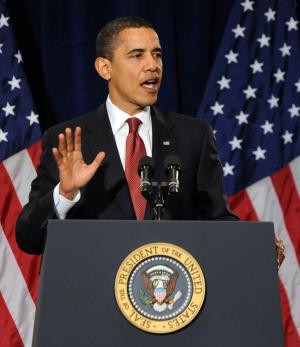 Tonight, President Obama addresses the nation about his plan for Afghanistan. Presidents are at their most presidential when talking to the country about foreign affairs, particularly war, and President Obama has an opportunity to shine tonight.
Tonight, President Obama addresses the nation about his plan for Afghanistan. Presidents are at their most presidential when talking to the country about foreign affairs, particularly war, and President Obama has an opportunity to shine tonight.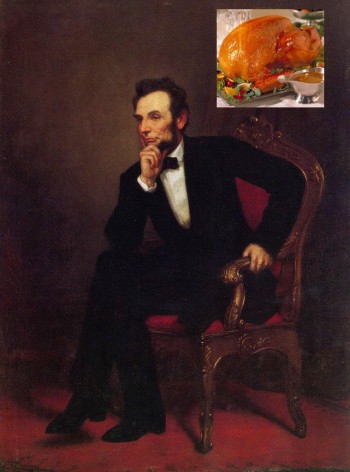 In October 1863, with his country mired in civil war, President Lincoln directed Americans to set aside the last Thursday in November as a day to give thanks for their “bounties.”
In October 1863, with his country mired in civil war, President Lincoln directed Americans to set aside the last Thursday in November as a day to give thanks for their “bounties.”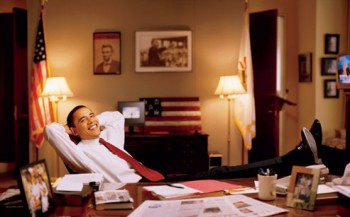 Politico’s designated Obama-speech watcher/reader
Politico’s designated Obama-speech watcher/reader 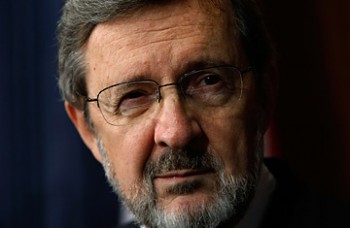 Kudos to House Appropriations Committee Chairman David Obey (hold on a sec … waiting to see if my head explodes … nope, good) for seeing the war in Afghanistan as something we should all pay for.
Kudos to House Appropriations Committee Chairman David Obey (hold on a sec … waiting to see if my head explodes … nope, good) for seeing the war in Afghanistan as something we should all pay for.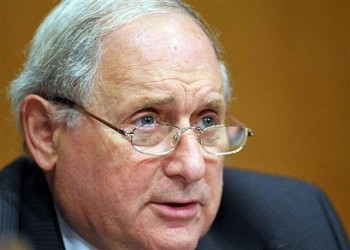 Senate Armed Services Committee Chairman Carl Levin has shown an uncanny ability to be wrong about almost every issue involving Iraq and Afghanistan in the last decade. This weekend, he’s come up with another doozy.
Senate Armed Services Committee Chairman Carl Levin has shown an uncanny ability to be wrong about almost every issue involving Iraq and Afghanistan in the last decade. This weekend, he’s come up with another doozy.
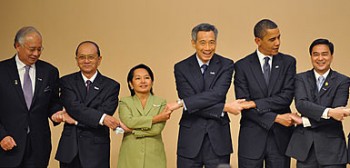 We don’t generally do up-to-the-minute news here, but I thought it worth following up on
We don’t generally do up-to-the-minute news here, but I thought it worth following up on 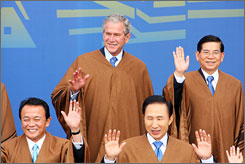 Ten months into his own term as US president, Barack Obama continues to conjure the ghost of George W. Bush to help define himself in international circles.
Ten months into his own term as US president, Barack Obama continues to conjure the ghost of George W. Bush to help define himself in international circles.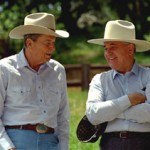 It was impossible not to wonder what was going through the mind of former Soviet President Mikhail Gorbachev as he
It was impossible not to wonder what was going through the mind of former Soviet President Mikhail Gorbachev as he